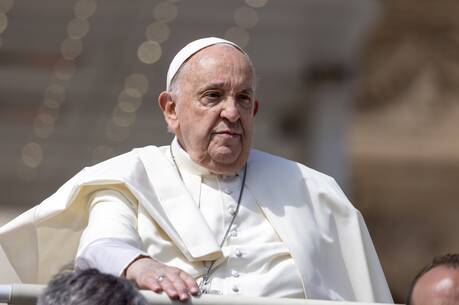'Archbishop of Canterbury and Pope in talks to heal rift' is the tenor of most news reports on their 20-minute meeting today. A Vatican communiqué described the encounter as "cordial" (when isn't it?): they discussed "the challenges facing all Christian communities at the beginning of this millennium, and the need to promote forms of collaboration and shared witness in facing these challenges", with a focus on "recent events affecting relations between the Catholic Church and the Anglican Communion".
Today's was a diplomatic exercise, but there is no rift. Dr Williams is annoyed at not being given proper notice of the Apostolic Constitution Anglicanorum coetibus -- he tells the Financial Times that he was left with a "bruised ego" - but then, nor did the bishops of England and Wales. Vatican high-handedness is nothing new. And in this case there was an obsession with the announcement not leaking out lest ecumenical relations be damaged more than they have.
One of the surprising -- at least to the journalists who have been calling me today -- elements of today's meeting was that the official Anglican-Catholic dialogue appears to be back on track after some years in the sidings. Benedict XVI and Dr Williams discussed the future of the next stage of the ARCIC process -- ARCIC III -- whose aim has always been to achieve the unification of the Anglican and the Catholic Churches. According to Cardinal Kasper, the topic is not yet agreed but is likely to be the question of the universal v. the local Church -- a subject that will be never far behind negotiations over the new ordinariates.
One of Dr Williams's most senior advisers, the Rev Canon Jonathan Goodall, will remain in Rome to launch a new round of dialogue designed to build closer ties. (He's the bearded one on the right 28 seconds into this video). Goodall is well known in Rome, and is a sharp ecclesiologist who has been at Dr Williams's side throughout the Anglican Communion storms of recent years. This news, taken with Dr Williams's speech at the Gregorian in Rome on Friday -- in which he proposed that the process of cohabitation being worked out by the Anglican Communion could offer a model for Christendom as a whole -- suggests there could be some interesting surprises ahead. Is there an Anglican plan being brewed -- a 'Covenant' that would commit the Churches of tradition (Catholic, Anglican, Orthodox) to working together more closely, recognizing the Pope as the "focus of unity" but not his Vatican I powers? Watch this space.
These are exciting times for the two Churches. Pope Benedict's mission, for which he wants his pontificate remembered, has become clear: to unite the disparate Christian communions in the common task of confronting new obstacles to the Church's witness. In Dr Williams Rome has a dialogue partner worth more than all his predecessors put together, one devoid of anti-Catholic prejudice and who very sincerely seeks tighter bonds with Rome. Pope Benedict's gift today to Dr Williams of a pectoral cross is just as strong a sign of respect for his episcopal office as was Pope Paul VI's gift of a ring to his predecessor, Archbishop Ramsay. (Dr Williams always wears the ring when he sees the Pope; today was no exception.)
The process of Christian unification is ultimately a task of the Holy Spirit, as Cardinal Kasper often points out. But it helps to have strong personal relationships of trust. A characteristic of the Holy Spirit's action is to transform the terms of discussion, creating new paradigms. This seems to be one of those times.
The barometer is set to CHANGE.







